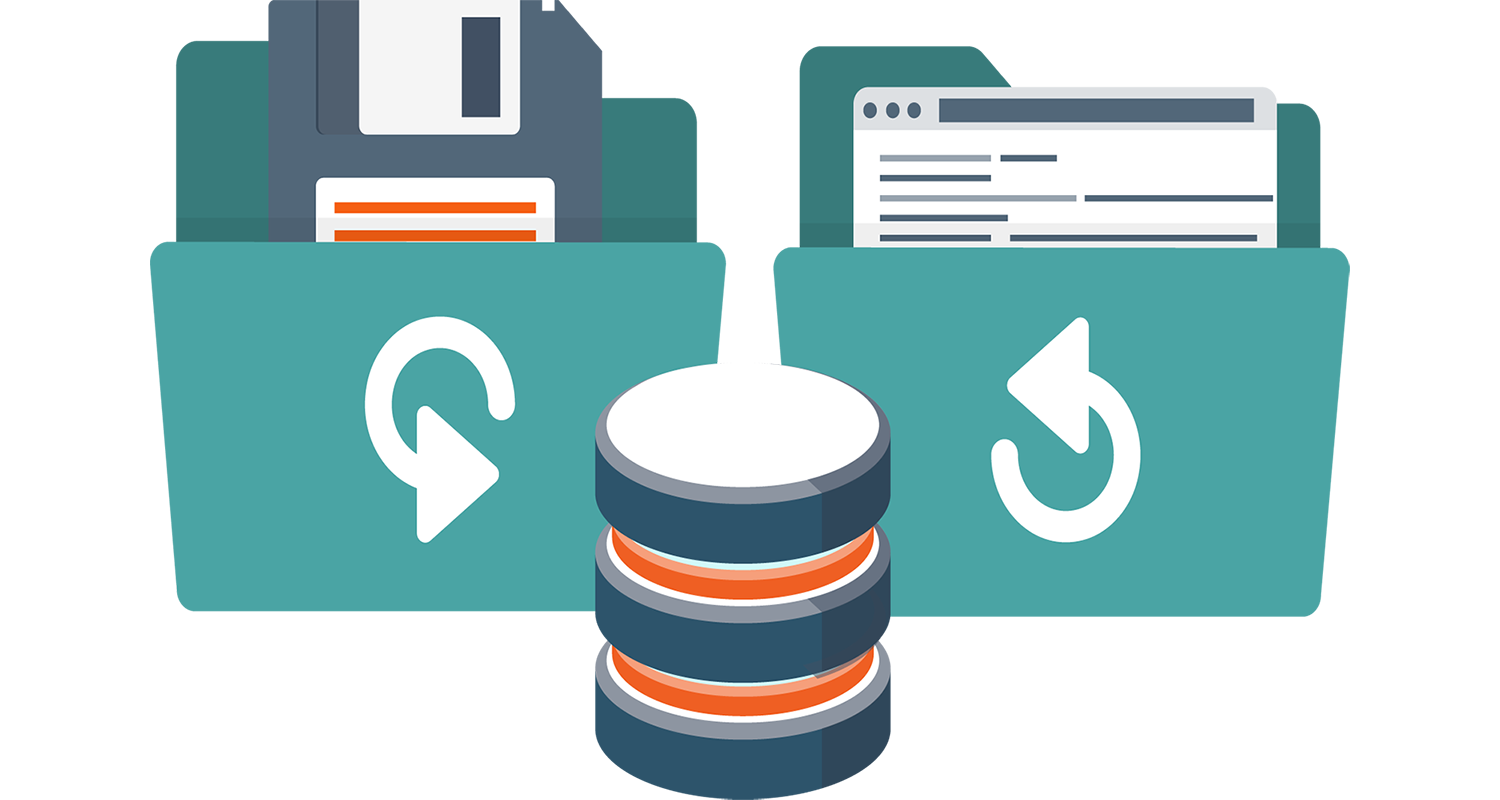How Successful Companies Backup Data

Data is a precious corporate asset, however, if poorly managed, it can turn into a huge liability. If your company deals with storing sensitive and confidential data of your clients, then it is your responsibility to keep it secure. Data breaches and damage is becoming more widespread. These can lead to downtime which can cause serious loss to your business. Average IT downtime can be expensive costing you between $84,000- $104,000 per hour. 25% of the companies which experience cyber-attacks or data breaches lose massive business opportunities. Nearly 40% of these companies lose more than 20% of their customers.
In view of the above, taking regular data backup should be a mandatory practice across businesses. However, it is not so. A study conducted by Small Business Computing reveals that 40% of small and medium-sized businesses (SMBs) don’t take data backups at all and 60% of their data is stored on PCs or laptops. With such massive downsides to not maintaining data backup, companies should pay more attention to developing and following a data backup plan to stay protected from data loss and breaches. The current article provides insights into how successful companies backup data.
Table of Contents
Why Data Backup is Important for Companies
The key reasons why taking regular data backup is important for companies are discussed below:
Technical Problems
While moving to the digital platform has made doing business easier, it also presents a new set of challenges. Your data stored on your system or any other platform can be damaged or lost due to technical problems. A power surge can cause your hard disk to malfunction putting the data stored on it at risk. You will not like to admit to a valued client that invaluable data has been lost as it will hold you and your business in a poor light. Taking regular data backup keeps you protected from data loss or corruption due to such technical problems.
Hacking
As the digital world expands its perimeter, it is constantly being challenged by hackers. Hackers can wreak havoc on your business by stealing or corrupting invaluable data through planned cyber-attacks. Hackers have evolved with time and have the ability to create ransomware and viruses which can change their code constantly, which makes them harder to detect and clean. Even with the best of security software, you are vulnerable to data loss through hacking. Hence, you should make regular data backups for ensuring the safety of your data.
Human Errors
It is natural for humans to make errors. Human errors like downloading an infected file to the system, accidentally pouring liquid on hard disk, etc. can cause data loss. It is in the best interest for your business to take periodic data backups to ensure that the business does not suffer due to such human errors and the resulting data loss.
Natural Calamities
While most businesses don’t realize this, but they are subject to natural calamities which can wipe their IT infrastructure and lead to data loss. A fire, flood, hurricanes, earthquakes, etc. are unpredictable and can severely damage your IT infrastructure. Taking periodic data backups keeps you protected from such unpredictable natural calamities and provides you peace of mind.
Preserves Company’s Reputation
When your business suffers data loss due to being attacked by hackers or any other reasons, its credibility is bound to be questioned. Your years of hard-earned reputation and goodwill can take an irreparable hit. It is difficult to win back the trust of your loyal customers who entrusted you with their personal and sensitive data. It becomes mandatory for any professional company to take data backups to stay honest with their customers and clients.
Minimizes Downtime
In the absence of data backup, it will take a considerable amount of time for you to restore your services to the clients. Some data may never be recovered which will create another set of issues for the company. This downtime can cause considerable loss of productivity and revenue as your services will be hit due to rebuilding from scratch. It will leave your clients and customers infuriated and they may never return back to you. Hence, to minimize the downtime, it is important to take regular data backups.
Meeting Legal and Regulatory Compliances
Some businesses are required to store business records for longer by government regulations. You will need these data for meeting legal and regulatory compliances like audits, taxation, etc. In case you don’t have data backups and your data is lost or corrupted, then you may be subjected to large fines and even penal action. Taking data backup allows your company to avoid such situations.
Types of Storage for Data Backups
While taking data backup for your business, you should adhere to the 3-2-1 rule. This means that you should keep at least 3 copies of backup so that all of them are not destroyed by a single event. The data should be stored in at least 2 different formats (hard drives, cloud, servers, etc.). Finally, you should keep one copy of the backup off-site to ensure that it is not lost due to natural calamities, theft, etc. You can use the following storage devices for data backups:
Hard Drives
Hard drives still remain the easiest and most basic storage device for data backups. You can connect the hard drive to your systems for taking instant backup. These drives are a cost-effective data backup option for small and medium businesses. You don’t need an internet connection for accessing your backup data. External hard drives are also portable and easy to carry around. You can access your backed up data on the go, instead of being tied to one location while trying to access it on an on-site backup device. You may check top recommended reviews of some quiet hard drives by QuietLivity.
Network Attached Storage (NAS)
NAS allows you to store backup data on a network. This method of data backup provides you the flexibility to store large amount of data in a cost-effective manner. NAS can reduce the load on already overworked servers which increases network efficiency and reduces network administration.
Cloud Storage
Cloud storage is becoming popular for storing data backup. Cloud storage keeps secure copies of your business data off-site in remote servers. These can be accessed online. This is an excellent way to store data to avoid redundancy. There is no need for your staff to carry hard drives for taking data backup as it can be taken directly on the cloud.
How to Prepare a Comprehensive Data Backup Plan
You can follow the below-mentioned steps for preparing a comprehensive data backup plan for your company:
Assess Your Data Backup Needs
The first step in preparing a fool-proof data backup plan is to assess your company’s data backup needs. You need to decide which data has to be backed up. You may need to backup databases, operating systems, applications, configurations, etc. to keep providing services to your clients. Some data may be more important to have instant backup of than others. You should decide the most pertinent risks to your company’s data. You should consider things like previous instances of data hacking by hackers, risk of data loss and damage by careless staff, vulnerability of your company to natural and weather-related damages, etc. Risk analysis provides you a perspective of how real the threat of data loss is and what immediate actions need to be taken.
You need to decide the type of data backup infrastructure needed. You can decide to store data backup in an on-site or off-site facility. A cloud disaster recovery site with your data center provider is a prudent choice for storing your data backup. Another factor to consider is how long you want to keep your backup stored. If you have massive data which needs to be stored for long, then you will need a larger storage space.
Identify the Best Data Backup Strategy
The next step is to identify the best data backup strategy. You may consider the following strategies:
Hardware Backup
Hard drive data backups are stored on-site. They can be easily attached to your network and come with a storage component. However, the flip side of this type of backup is that if the backed-up data fails, then you don’t have anything to fall back on.
Software Solutions
You can buy software solutions for taking data backup. The software can be installed on your system and there is no need to have a dedicated server for it. It is a good choice if your infrastructure keeps changing frequently.
Cloud Services
Cloud services allow you to take data backup and store it on the vendor’s cloud infrastructure. This method is cheaper than maintaining dedicated servers for data backup. However, if you deal with lots of sensitive data, it is not the best method for data backup.
Hybrid Solutions
Hybrid solutions are a combination of software and cloud backups for taking data backup. You will have access to on-site data backup and also access data on the cloud infrastructure by using hybrid solution for data backup.
The type of backup strategy depends on RTO (Recovery Time Objective) and RPO (Recovery Point Objective). RPO is the maximum time which you are willing to lose data on your systems. RTO is the time you can wait for restoring normal business operations.
Create a Budget
You should create a budget for your data backup plan. The budget should be based on considerations like the maximum amount you can spend for data backup, cost to business If data is lost, the cost of training employees for taking and managing data backup, etc. You can budget data backup as capital expenditure or a service by paying a monthly fee and avoiding considerable up-front investment in data backup infrastructure. You should not underspend on data backup as many businesses don’t see it as a profit center. However, the costs of data loss can be much higher and fatal for your business than investing in data backup solutions and services.
Select a Platform
You should carefully select the platform for data backup. Depending upon the nature of your business and its requirements, you may have to select a platform which will provide multiple backups to keep you protected. You can also decide to use cloud infrastructure for data backup as it can be accessed from anywhere. However, if you handle sensitive data, then many experts suggest against cloud platforms as data confidentiality can become an issue. Government regulations may also prohibit you from storing such sensitive data on the servers of an external service provider. You need to opt for off-site secure storage for keeping data backups.
Selecting Data Backup Vendor
Selecting a data backup vendor is an important step in your data backup plan. You should select vendors who have expertise in this field. You can consider taking feedback and references for selecting them. Ideally, you should request for a proposal from vendors and choose them based on competitive bidding. You can consider factors like experience, data backup methods suggested, time for implementation of data backup plan, time for providing data backup, vendor’s reputation, and the budget for selecting the best data backup vendor.
Create a Data Backup Recovery Plan
Once the vendor is finalized, you need to create a data backup recovery plan. Your recovery plan should answer questions like the type of recovery you need, data to be recovered, dependencies which may affect data recovery, and any post-recovery procedures to be followed. You should loop in the people who will be involved in managing the data backup while creating the data backup recovery plan.
Test the Backup System
The final step is to test the backup, which should be an ongoing task. You can either decide to check the data backup after every backup session. You should check whether you are able to access and utilize the backed-up data properly. Your restoration process should be smooth and hassle-free. You can set up a backup testing schedule and test the data weekly, fortnightly, or monthly as per your needs. If you add a new app or upgrade an existing app, you should schedule additional tests to ensure it is working properly.




